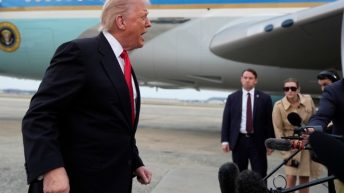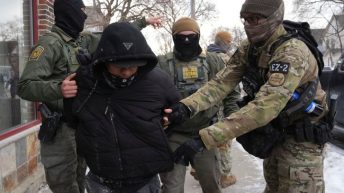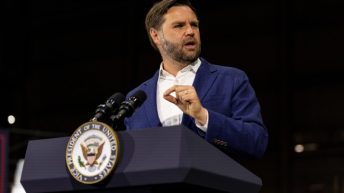President Donald Trump used the U.S.-Saudi Investment Forum to tout huge Saudi investment in the U.S., criticize Federal Reserve leadership, and announce unexpected U.S. cooperation to help stabilize Sudan at Saudi Arabia’s request, laying out economic wins and a new diplomatic push in a single speech.
President Trump: Saudi Arabia Asked the US to Help ‘Bring an Immediate Halt” to ‘Crisis’ in Sudan
At the Washington forum, President Trump framed the visit as proof that America is back and open for business, emphasizing a major Saudi pledge to invest in the United States. He underlined a bipartisan goal many voters support: attracting foreign capital while protecting American jobs and industry. The tone was unapologetic and business-first, with Trump linking the investment news to broader economic themes.
He took a pointed swipe at the Federal Reserve and its chairman, criticizing slow action on interest rates and calling out what he described as costly projects at the Fed. The president addressed Treasury Secretary Scott Bessent directly during parts of his remarks, signaling he remains sharply focused on monetary policy and its effect on everyday Americans. That criticism is consistent with his campaign-style emphasis on low borrowing costs and pro-growth measures.
One passage in the coverage relays a colleague’s summary of Trump’s zings at the Fed, and it contains quoted material describing both the investment and the criticism:
Although the president touted the Gulf Kingdom’s agreement to invest a trillion dollars into the U.S., he also managed to zing the Fed chair over his enormously expensive renovation projects and his slow pace in raising interest rates since POTUS took office in January.
…
The president also blasted Powell for his slow pace in lowering interest rates, and told Treasury Secretary Scott Bessent he’d love to fire the Fed chair post haste.
Beyond the rhetoric about the Fed, Trump highlighted concrete business deals, including a mention of GE Aerospace fulfilling “dozens of new airplane engines” for Saudi commercial carriers. He framed these contracts as the tangible payoff of stronger U.S.-Saudi ties and a more business-friendly American posture. That message plays to voters who want trade that benefits American workers and manufacturers.
Trump spotlighted the Saudi announcement that they will invest $1 trillion in the United States and called that pledge “an honor” during his address. He linked that money to planned infrastructure work and collaborations across sectors, especially in energy and liquefied natural gas. The president cast these partnerships as both economic opportunity and strategic alignment in a competitive global market.
He also referenced recent U.S. military actions that, in his words, “lifted a dark cloud away from” Saudi Arabia by striking Iranian nuclear facilities, framing it as protection of regional partners. Trump suggested that such decisive moves open the door for future diplomatic arrangements. Those remarks reinforced his pledge to defend allies while negotiating from strength.
Then Trump turned to an unexpected humanitarian and diplomatic initiative centered on Sudan, saying it wasn’t originally on his agenda but became important after conversations with regional leaders. He credited the Crown Prince of Saudi Arabia and other Arab leaders for asking the United States to use presidential influence to stop violence. The shift from economic talk to crisis response underscored a broader US role in regional stability.
On his Truth Social account, the president elaborated that the U.S. will help stabilize Sudan at the Saudis’ request, working with wealthy regional partners to address atrocities and the ensuing humanitarian emergency. He stressed that food, medical care, and stability are urgently needed and framed the intervention as coordinated action with regional wealth. The statement underscores a willingness to leverage U.S. influence alongside Gulf resources.
For readers who want the exact language he posted, the Truth Social message was included in full and reads:
Tremendous atrocities are taking place in Sudan. It has become the most violent place on Earth and, likewise, the single biggest Humanitarian Crisis. Food, doctors, and everything else are desperately needed. Arab Leaders from all over the World, in particular the highly respected Crown Prince of Saudi Arabia, who has just left the United States, have asked me to use the power and influence of the Presidency to bring an immediate halt to what is taking place in Sudan. It is considered a Great Civilization and Culture, unfortunately gone bad, but one that can be fixed with the cooperation and coordination of Countries, including those in the Region of tremendous Wealth, who want this to happen. We will work with Saudi Arabia, United Arab Emirates, Egypt, and other Middle Eastern partners to get these atrocities to end, while at the same time stabilizing Sudan. Thank you for your attention to this matter. GOD BLESS THE WORLD!
The president’s remarks at the forum mixed hard-edged economic messaging with swift diplomatic commitments, signaling a return to assertive, results-driven foreign policy tied to tangible investments. The announcements are likely to shape both economic forecasts and geopolitical conversations in the coming weeks.





Add comment